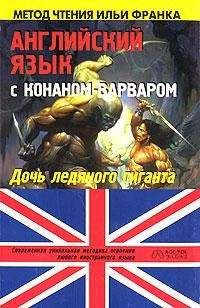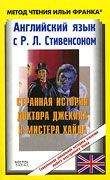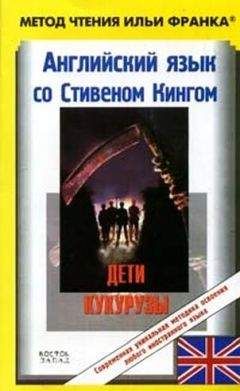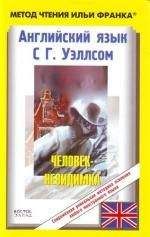false [fɔ: ls], rush [rʌʃ], dawn [dɔ: n]
‘Lest you entertain false hopes of rescue by your men,’ Feng went on, ‘I have thought of that, also. In these hills dwell the Jagas, a primitive headhunting tribe. Attracted by your campfire, they will assemble at the ends of the valley and rush your camp at dawn. It is their invariable procedure.
‘By that time I shall, I hope, be far away (к тому времени /я/, надеюсь, буду далеко прочь = отсюда). If they capture me, too — well, a man must die some time, and I trust I shall do so with the dignity and decorum befitting one of my rank and culture (если они схватят меня тоже — хорошо = что ж, человек должен умереть когда-то, а я верю, /что/ /я/ сделаю это с достоинством и этикетом, приличествующим одному = человеку моего ранга и культуры). My head would make a delightful ornament in a Jaga hut, I am sure (моя голова стала бы очаровательным украшением в хижине джага, я уверен).
die [daɪ], trust [trʌst], culture [ˈkʌltʃə]
‘By that time I shall, I hope, be far away. If they capture me, too — well, a man must die some time, and I trust I shall do so with the dignity and decorum befitting one of my rank and culture. My head would make a delightful ornament in a Jaga hut, I am sure.
‘And so, my good barbarian, farewell (итак, мой добрый варвар, прощай). You will forgive this person for turning his back upon you during your last moments (ты простишь эту = мою персону за то, что /я/ повернусь к тебе спиной: «за поворачивание своей спиной на тебя» во время твоих последних мгновений). For your demise is a pity in a way, and I should not enjoy witnessing it (ибо твоя кончина печальный факт в какой-то мере; pity — жалость, печальный факт; in a way — в некотором отношении, в известном смысле, до известной степени). Had you had the advantages of a Khitan upbringing, you would have made an admirable servant (если бы ты имел преимущества кхитайского воспитания, ты стал бы замечательным слугой) — say, a bodyguard for me (скажем, телохранителем для меня). But things are as they are (но дела /такие/, как они есть = но дела обстоят так, /а не иначе/; thing — вещь, дело, факт, предмет).’
pity [ˈpɪtɪ], servant [ˈsə: vənt], say [seɪ]
‘And so, my good barbarian, farewell. You will forgive this person for turning his back upon you during your last moments. For your demise is a pity in a way, and I should not enjoy witnessing it. Had you had the advantages of a Khitan upbringing, you would have made an admirable servant — say, a bodyguard for me. But things areas they are.’
After a mocking bow of farewell, the Khitan withdrew to the lower slope of the hill (после насмешливого прощального поклона кхитаец удалился к более низкому склону холма). Conan wondered if the Duke’s plan was to leave him trapped against the shaft until he perished of starvation and thirst (Конан хотел знать, ли план князя был оставить его = было ли в планах князя оставить его в ловушке у колонны, пока он /не/ погибнет от голода и жажды). If his men marked his absence before dawn, they might look for him (если его люди заметили бы его отсутствие до зари, они могли бы поискать его). But then, since he had stolen out of the camp without leaving word of his going (но тогда, так как он прокрался из лагеря без оставления слова = не сказав о своем уходе), they would not know whether to be alarmed by his absence (они не знали бы, тревожиться ли им из-за его отсутствия: «ли быть встревоженными». If he could only get word to them, they would scour the countryside for him (если бы он мог только передать им словечко, они бы прочесали местность ради него) and make short work of the treacherous little duke (и быстро разделались бы: «сделали короткую работу» с вероломным князьком). But how to get word (но как передать словечко = сообщить)?
slope [sləup], thirst [Ɵə: st], word [wə: d]
After a mocking bow of farewell, the Khitan withdrew to the lower slope of the hill. Conan wondered if the Duke’s plan was to leave him trapped against the shaft until he perished of starvation and thirst. If his men marked his absence before dawn, they might look for him. But then, since he had stolen out of the camp without leaving word of his going, they would not know whether to be alarmed by his absence. If he could only get word to them, they would scour the countryside for him and make short work of the treacherous little duke. But how to get word?
Again he threw his massive strength against the force that held him crushed against the column, but to no avail (снова он бросил свою большую силу против силы, которая держала его придавленным к колонне, но без никакой = какой- либо пользы). He could move his lower legs and arms and even turn his head somewhat from side to side (он мог двигать нижними ногами и руками = нижними частями ног и рук и даже вращать /своей/ головой немного из стороны в сторону). But his body was firmly gripped by the iron mail that clothed it (но его тело было крепко охвачено железной кольчугой, которая покрывала его).
threw [Ɵru: ], strength [streŋƟ], iron [ˈaɪən]
Again he threw his massive strength against the force that held him crushed against the column, but to no avail. He could move his lower legs and arms and even turn his head somewhat from side to side. But his body was firmly gripped by the iron mail that clothed it.
Now the moon brightened (теперь луна прояснилась). Conan observed that, about his feet and elsewhere around the base of the monument, grisly remains of other victims were scattered (Конан заметил, что у его ног и в других местах вокруг основания памятника были разбросаны вызывающие ужас останки других жертв). Human bones and teeth were heaped like old rubbish (человеческие кости и зубы были свалены как старый мусор); he must have trodden upon them when the mysterious force pulled him up against the shaft (он, должно быть, наступил на них, когда таинственная сила притянула его к столбу; must have trodden — выражение вероятности события в прошлом с помощью модального глагола must (должно быть, наверное) — must + have + причастие прошедшего времени).
base [beɪs], remains [rɪˈmeɪnz], rubbish [ˈrʌbɪʃ]
Now the moon brightened. Conan observed that, about his feet and elsewhere around the base of the monument, grisly remains of other victims were scattered. Human bones and teeth were heaped like old rubbish; he must have trodden upon them when the mysterious force pulled him up against the shaft.
In the stronger light, Conan was disquieted to see that these remains were peculiarly discolored (в более сильном свете Конан был встревожен увидеть = увидев, что эти останки были необычно бледными). A closer look showed that the bones seemed to have been eaten away here and there (более пристальный взгляд показал, что кости, казалось, были объедены тут и там), as if some corrosive fluid had dissolved their smooth surfaces to expose the spongy structure beneath (как будто какая-то едкая жидкость растворила их гладкую поверхность, чтобы показать пористую структуру под /ней/).
eaten [i: tn], smooth [smu: ð], structure [ˈstrʌktʃə]
In the stronger light, Conan was disquieted to see that these remains were peculiarly discolored. A closer look showed that the bones seemed to have been eaten away here and there, as if some corrosive fluid had dissolved their smooth surfaces to expose the spongy structure beneath.
He turned his head from side to side, seeking some means of escape (он вертел головой из стороны в сторону, ища = в поисках какого-нибудь средства /для/ побега). The words of the smooth-tongued Khitan seemed to be true (слова льстивого кхитайца казались /быть/ правдой, но теперь он мог разглядеть куски железа), but now he could discern pieces of iron held against the curiously stained and discolored stone of the column by the invisible force (удерживаемые на странно испачканном и обесцвеченном камне колонны невидимой силой). To his left he sighted the shovel, the crowbar, and the rusty bowl of a helmet (слева от него: «к его левому» он увидел лопату, лом и ржавую сферу шлема), while on the other side a time-eaten dagger was stuck against the stone (в то время как на другой стороне изъеденный временем кинжал был приклеен к камню). Yet once more he hurled his strength against this impalpable force… (/и/ все-таки еще раз он бросил свою силу против этой неосязаемой силы…)
escape [ɪˈskeɪp], means [mi: nz], true [tru:]
He turned his head from side to side, seeking some means of escape. The words of the smooth-tongued Khitan seemed to be true, but now he could discern pieces of iron held against the curiously stained and discolored stone of the column by the invisible force. To his left he sighted the shovel, the crowbar, and the rusty bowl of a helmet, while on the other side a time-eaten dagger was stuck against the stone. Yet once more he hurled his strength against this impalpable force…
From below sounded an eery piping sound — a mocking, maddening tune (снизу раздался зловещий звук свирели — насмешливый, сводящий с ума мотив). Straining his eyes through the fickle moonlight, Conan saw that Feng had not left the scene after all (напрягая свои глаза сквозь переменчивый свет луны, Конан увидел, что Фэн не покинул место действия, в конце концов). Instead, the duke was sitting on the grass on the side of the hill, near its base (вместо этого князь сидел на траве на краю холма, возле его основания). He had drawn a curious flute from his capacious garments and was playing upon it (он вытащил странную флейту из своих вместительных одежд и играл /на/ ней).
sound [saund], tune [tju: n], scene [si: n]
From below sounded an eery piping sound — a mocking, maddening tune. Straining his eyes through the fickle moonlight, Conan saw that Feng had not left the scene after all. Instead, the duke was sitting on the grass on the side of the hill, near its base. He had drawn a curious flute from his capacious garments and was playing upon it.
Through the shrill piping, a faint, squashy sound reached Conan’s ears (сквозь пронзительные звуки /флейты/ слабый чавкающий звук достиг ушей Конана). It seemed to come from above (он казался доноситься = казалось, доносится сверху). The muscles of Conan’s bullneck stood out as he twisted his head to look upward (мускулы бычьей шеи Конана выступили, когда он повернул /свою/ голову, чтобы посмотреть вверх); the spired Turanian helmet grated against the stone as he moved (остроконечный туранский шлем заскрежетал /о/ камень, когда он зашевелился). Then the blood froze in his veins (затем кровь застыла в его венах; to freeze — замерзать, застывать, морозить).
faint [feɪnt], muscles [mʌsklz], froze [frəuz]
Through the shrill piping, a faint, squashy sound reached Conan’s ears. It seemed to come from above. The muscles of Conan’s bullneck stood out as he twisted his head to look upward; the spired Turanian helmet grated against the stone as he moved. Then the blood froze in his veins.
The mist that had obscured the top of die pylon was gone (дымка, которая затеняла вершину пилона, была ушедшей = пропала/исчезла/рассеялась). The rising half moon shone on and through an amorphous thing, which squatted obscenely on the summit of the column (поднимающийся полумесяц светил на и сквозь аморфное существо, которое сидело противно: «непристойно» = вызывая отвращение на вершине колонны). It was like a huge lump of quivering, semi- translucent jelly — and it lived (оно было подобно огромной глыбе подрагивающего полупрозрачного студня — и оно жило = было живым). Life — throbbing, bloated life — pulsed within it (жизнь — пульсирующая, распухшая жизнь — билась в нем). The moonlight glistened wetly upon it as it beat like a huge, living heart (лунный свет блестел мокро = отсвечивал мокрым на нем, когда оно билось, как огромное, живое сердце; to beat — бить(ся), ударить).





